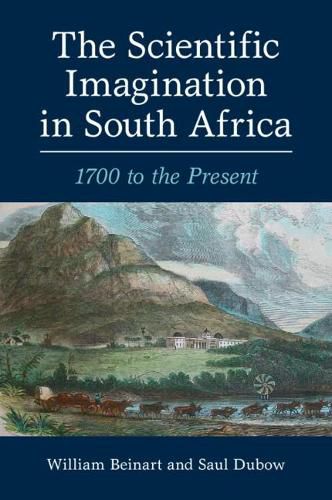Readings Newsletter
Become a Readings Member to make your shopping experience even easier.
Sign in or sign up for free!
You’re not far away from qualifying for FREE standard shipping within Australia
You’ve qualified for FREE standard shipping within Australia
The cart is loading…






South Africa provides a unique vantage point from which to examine the scientific imagination over the last three centuries, when its position on the African continent made it a staging post for Portuguese, Dutch, and British colonialism. In the eighteenth century, South African plants and animals caught the imagination of visiting Europeans. In the nineteenth century, science became central to imperial conquest, devastating wars, agricultural intensification and the exploitation of rich mineral resources. Scientific work both facilitated, and offered alternatives to, the imposition of segregation and apartheid in the twentieth century. William Beinart and Saul Dubow offer an innovative exploration of science and technology in this complex, divided society. Bridging a range of disciplines from astronomy to zoology, they demonstrate how scientific knowledge shaped South Africa’s peculiar path to modernity. In so doing, they examine the work of remarkable individual scientists and institutions, as well as the contributions of leading politicians from Jan Smuts to Thabo Mbeki.
$9.00 standard shipping within Australia
FREE standard shipping within Australia for orders over $100.00
Express & International shipping calculated at checkout
South Africa provides a unique vantage point from which to examine the scientific imagination over the last three centuries, when its position on the African continent made it a staging post for Portuguese, Dutch, and British colonialism. In the eighteenth century, South African plants and animals caught the imagination of visiting Europeans. In the nineteenth century, science became central to imperial conquest, devastating wars, agricultural intensification and the exploitation of rich mineral resources. Scientific work both facilitated, and offered alternatives to, the imposition of segregation and apartheid in the twentieth century. William Beinart and Saul Dubow offer an innovative exploration of science and technology in this complex, divided society. Bridging a range of disciplines from astronomy to zoology, they demonstrate how scientific knowledge shaped South Africa’s peculiar path to modernity. In so doing, they examine the work of remarkable individual scientists and institutions, as well as the contributions of leading politicians from Jan Smuts to Thabo Mbeki.